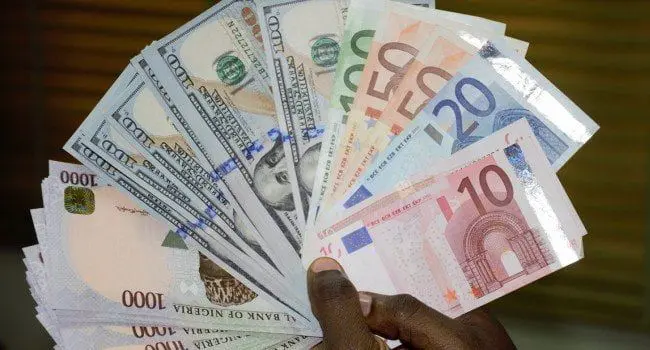
Aboki Naira to Dollar Black Market Exchange Rate Today, 12th October 2025
The Nigerian Naira traded marginally higher against the US Dollar on the parallel market, known colloquially as the “Aboki” rate, closing the day at an average of ₦1,505 per USD.
This slight uptick from Friday’s rate of ₦1,500 reflects ongoing volatility in Nigeria’s foreign exchange landscape, driven by persistent dollar demand from importers and remittances, even as the Central Bank of Nigeria (CBN) continues its interventions to stabilize the currency.
Trending Now!!:
According to street traders and Bureau de Change operators in key hubs like Lagos, Abuja, Port Harcourt, and Kano, the selling rate hovered between ₦1,500 and ₦1,510 throughout the trading session, with buying rates averaging ₦1,485 to ₦1,495.
“Business was steady but cautious today—everyone’s watching the CBN’s next move and global oil prices,” said one anonymous dealer in Lagos’ Alaba International Market, a notorious hotspot for informal forex trades.
The parallel market rate remains significantly higher than the official CBN window, where the Naira closed at approximately ₦1,480 per USD on Friday, underscoring the wide premium that characterizes Nigeria’s dual exchange system.
Economists attribute the black market’s resilience to factors including seasonal import surges ahead of the holiday season, reduced foreign inflows, and lingering effects from the CBN’s recent rate hikes aimed at curbing inflation, which hit 34.7% in September.
| Currency Pair | Black Market Buy Rate (₦) | Black Market Sell Rate (₦) | Change from Oct 11 |
|---|---|---|---|
| USD/NGN | 1,490 | 1,505 | +0.33% |
| EUR/NGN | 1,670 | 1,720 | -0.58% |
| GBP/NGN | 1,970 | 2,030 | +0.49% |
In comparison, the Naira has depreciated by about 4.3% year-to-date against the Dollar on the black market, a stark reminder of the currency’s turbulent path since the unification of exchange rates earlier this year.
However, recent CBN dollar injections—totalling over $2 billion in the past quarter—have helped temper sharper declines, with the parallel rate stabilising around the ₦1,500 mark since early October.
Market watchers remain divided on the outlook. “If oil prices hold above $75 per barrel and diaspora remittances pick up, we could see the Naira firm to ₦1,450 by year-end,” opined Dr. Aisha Bello, a forex analyst at Lagos-based Zenith Capital.
Others, however, warn of risks from global uncertainties, including potential US Federal Reserve rate cuts that could divert capital flows away from emerging markets like Nigeria.
For everyday Nigerians relying on the black market for travel, education abroad, or small-scale imports, the rate’s stability offers a brief respite. Yet, with inflation eroding purchasing power, calls for deeper structural reforms—from boosting non-oil exports to enhancing digital remittance channels—grow louder.
As the CBN’s next monetary policy meeting looms later this month, all eyes will be on whether fresh interventions can bridge the gap between official and parallel rates, potentially easing the Naira’s long-standing woes.
For now, the Aboki traders soldier on, their WhatsApp groups buzzing with real-time quotes that often outpace formal announcements.


